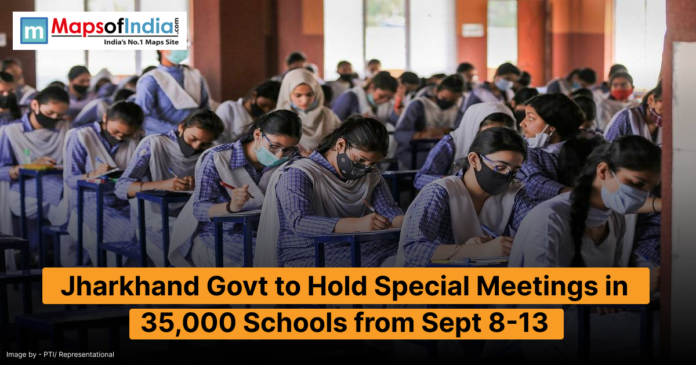The Jharkhand government has declared a huge project in the state to see to it that all children aged between 6 and 18 years are enrolled in schools and have completed at least Class 12. The government will also hold the second annual teacher-parent meeting between September 8 and 13 at almost 35,000 schools in the state. This will be the first time that ministers, Members of Parliament (MPs), Members of Legislative Assembly (MLAs), and top officials of particular districts will directly take part in such meetings, and thus it is a one-off and historic move in the education sector.
The goal of this project is not merely to enroll more students but also to address the problem of school dropouts in Jharkhand, which is long-standing. In some regions with a high number of rural and tribal populations, children are forced to stop their education with financial hardships, early marriage, family migration, and ignorance of the need to attend school. Incorporating elected officials and top officials in the process is an attempt by the government to give a powerful message that education is a communal duty and that it is a priority for the future of the state.
The officials/representatives will interface directly with families, teachers, and local communities during the teacher-parent meetings. They will insist on the value of regular schooling and persuade the parents to make sure that their children remain in school at least till Class 12. The meetings will also be viewed as an avenue where parents can raise issues about facilities, teaching quality, and the problems that the students encounter, so that authorities can act promptly.
The larger aim of the state, as reflected in this initiative, is to fortify the educational background in Jharkhand. The government would be preventing cases of child labour by making sure that the children stay in school, enhancing gender equality in their education, as well as providing avenues to higher studies and skill acquisition. Through the active involvement of leaders and officials on the ground, the program will create more trust in the communities and create awareness regarding the long-term rewards of education.
The ensuing week-long exercise is being considered as a significant step to realize the target of 100 per cent school enrollment and retention. It is an indicator of the government’s determination not only to increase access to education but to enhance quality and accountability in the system as well. With Jharkhand gearing towards this grand initiative, the involvement of ministers, lawmakers and senior officials will most likely make the initiative more meaningful and the focus of education become an issue of high conversation.










